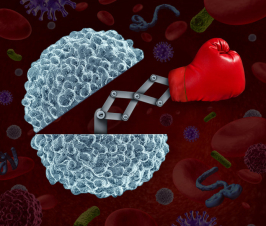Dr. Sarah Cimperman, ND
@drcimperman
Pregnancy is a life-changing experience. Like any big event, thoughtful preparation can ease the transition and improve the outcome. Give yourself the best chance for a happy pregnancy and a healthy baby by taking time now to optimize your fertility and do some advanced planning. These seven steps will help you get ready for the exciting changes ahead.
#1 | Get your health in order
It takes about 90 days for eggs and sperm to mature, so both partners should be in optimum health for at least 3 months prior to conception. I advise my patients to eliminate sweet foods and beverages as well as processed and flour-based foods, and to make sure that every meal contains fifty percent green or non-starchy vegetables, a portion of protein, and at least one source of healthy fat. It’s also important to exercise regularly, manage stress effectively, get at least eight hours of sleep every night, and stop smoking, which can increase the risk of infertility, complications during pregnancy, premature birth, low birth weight, stillbirth, and infant mortality.1 Certain medical conditions can affect fertility – including diabetes, overweight and obesity, autoimmune disease, polycystic ovary syndrome (PCOS), endometriosis, sexually transmitted infections, and uterine polyps and fibroids – so now is the time to address any health concerns. Talk to your doctor about how to treat chronic conditions and what effect they may have on pregnancy.
#2 | Practice good oral hygiene
Now is also the time to schedule an appointment with your dentist. It may seem unrelated, but oral health can have a significant effect on pregnancy and periodontal disease is not uncommon. It affects about ten percent of the population. Studies show that women with periodontal disease can take longer to conceive and the negative effect on fertility has been compared to that of obesity.2 Periodontal disease has also been linked to miscarriage and premature birth as well as heart disease, type 2 diabetes, respiratory disorders, and kidney disease.3 Periodontal disease is treatable and preventable with good oral hygiene and regular dental care, so incorporate these healthy habits into your regular routine if you haven’t already.
#3 | Minimize your exposure to hormone-disrupting chemicals
Toxic chemicals in the environment can disrupt sex hormones. These endocrine disruptors mimic estrogen and can lead to hormone imbalances that may interfere with fertility in both men and women.4 Endocrine-disrupting chemicals include pesticides, parabens, dioxins, phthalates, brominated flame retardants, and plasticizers like Bisphenol A or BPA. These toxins can be found in non-organic foods, food additives, some species of fish and seafood, drinking water, plastic bottles, food and beverage cans, plastic wrap and plastic storage containers, Styrofoam containers, dental fillings, paint, furniture, mattresses, clothing, and personal products like shampoo, lotion, deodorant, cosmetics, and fragrances. Minimize your exposure by filtering water for drinking and cooking, avoiding foods and beverages in disposable containers, eating organic whenever you can, searching the Environmental Working Group’s Skin Deep Cosmetics Safety Database to find non-toxic personal products, and using the Environmental Defense Fund’s Seafood Selector to choose non-toxic fish and seafood. You can find even more strategies in my article, “10 Ways to Detox Your Home,” and my book, The Prediabetes Detox.
#4 | Detox
Babies are born with up to 232 different environmental toxins already inside their bodies including mercury, multiple pesticides, more than a dozen different flame retardants, and air pollutants from fossil fuels, plastic production, and coal-fired power plants.5 These chemicals have been associated with an increased risk of hormone problems, reproductive and developmental disorders, various kinds of cancer, and diseases of the respiratory, neurological, and immune systems.6 To reduce the risk of passing toxic chemicals on to your baby, it’s important to detox before you become pregnant because detoxification isn’t safe during pregnancy or breastfeeding. Cleansing products and protocols have become increasingly popular – from herbal teas and laxatives to kale smoothies and spa treatments – but detoxification is a complex physiological process that requires a comprehensive program. Detox can only happen when toxins are mobilized from their storage sites, processed through biochemical pathways in the liver, and excreted through distinct pathways of elimination. You can learn more about how detox really works in my recent article, “Detox Facts and Fiction”, and my book, The Prediabetes Detox.
#5 | Practice Fertility Awareness
When you’re planning pregnancy, it’s important to know if and when you ovulate. Fertility Awareness, also known as the Sympto-Thermal Method, can help identify the fertile days of each menstrual cycle and determine if and when ovulation and pregnancy occur. For women who don’t get pregnant, it can provide vital information for diagnosing and treating infertility. Fertility Awareness requires daily recording of your waking body temperature and the quality of cervical fluid. It only takes minutes each day but requires a strong commitment to consistent practice. Learn the method by reading a book like The Garden of Fertility by Katie Singer or Taking Charge of Your Fertility by Toni Weschler, then get a good quality basal thermometer and record your findings using an app (like MeFertil, myNFP, or Woman Calendar) or a printable chart from www.gardenoffertility.com.
#6 | Start taking a good quality multi-vitamin-mineral supplement
In an ideal world, we would get all of the nutrients our bodies need from our diet. But in the real world, this isn’t always possible. Many of the nutrient-dense wild foods our ancestors ate have disappeared from our diet, modern food manufacturing depletes vitamins and minerals, and home-cooked meals are frequently replaced with less nutritious processed, prepared, and packaged foods. To ensure that my patients are getting the necessary nutrients for production of healthy eggs and sperm – including methylated forms of folic acid and B vitamins, vitamins C and E, beta carotene, and minerals like zinc, selenium, and manganese – I advise both men and women to start a high quality multi-vitamin-mineral supplement at least three months before conception. Ask your naturopathic doctor for recommendations or look for products free of additives, made by a reputable manufacturer, tested by an independent lab, and certified by organizations like the United States Pharmacopeia, the National Nutritional Foods Association, Consumer Lab, or National Sanitation Foundation International.
#7 | Check something off your bucket list
Once you become a parent, your obligations and responsibilities will only grow, so before that happens, take advantage of the relative freedom you have now. Do something you’ve never done before or travel somewhere you’ve never been. If your options are limited, you can still savor the small things, like sleeping in on a day off, going to a movie, eating a leisurely meal at a restaurant, enjoying a night out on the town, or going for a spontaneous hike or a walk on the beach. Your life doesn’t have to stop because you start a family, but once you do, it will be a long time before these things are again as easy as they are now.
 Sarah Cimperman, ND is the author of the new book, The Prediabetes Detox: A Whole-Body Program to Balance Your Blood Sugar, Increase Energy, and Reduce Sugar Cravings. She graduated from NCNM in 2002 and has a private practice in New York City. Her expertise has been featured on Fox News and Huffington Post and in Natural Health magazine, Whole Living magazine, and the Well Being Journal, among other publications. Dr. Cimperman also writes two blogs, A Different Kind Of Doctor and The Naturopathic Gourmet.
Sarah Cimperman, ND is the author of the new book, The Prediabetes Detox: A Whole-Body Program to Balance Your Blood Sugar, Increase Energy, and Reduce Sugar Cravings. She graduated from NCNM in 2002 and has a private practice in New York City. Her expertise has been featured on Fox News and Huffington Post and in Natural Health magazine, Whole Living magazine, and the Well Being Journal, among other publications. Dr. Cimperman also writes two blogs, A Different Kind Of Doctor and The Naturopathic Gourmet.
References:
1 Office of the United States Surgeon General; Office on Smoking and Health. (2004.) The Health Consequences of Smoking: A Report of the Surgeon General. Atlanta, GA: United States Centers for Disease Control and Prevention.
http://www.ncbi.nlm.nih.gov/books/NBK44697/
2 Hart R, Doherty DA, Pennell CE, Newnham IA, and Newnham JP. Periodontal disease: a potential modifiable risk factor limiting conception. Human Reproduction. 2012;27(5):1332-42. http://www.ncbi.nlm.nih.gov/pubmed/22362927
3 European Society of Human Reproduction and Embryology (ESHRE). (2011, August 1). Gum disease can increase the time it takes to become pregnant. ScienceDaily. Retrieved August 11, 2016 from www.sciencedaily.com/releases/2011/07/110705071548.htm.
4 Marques-Pinto A and Carvalho D. Human infertility: are endocrine disruptors to blame? Endocrine Connections. 2013;2(3):R15-29. http://www.ncbi.nlm.nih.gov/pubmed/23985363
5 EWG (Environmental Working Group). Pollution in Minority Newborns: BPA and Other Cord Blood Pollutants. [Web page]. EWG website. http://www.ewg.org/research/minority-cord-blood-report/bpa-and-other-cord-blood-pollutants. Accessed August 10, 2016.
6 Sears ME and Genuis SJ. Environmental Determinants of Chronic Disease and Medical Approaches: Recognition, Avoidance, Supportive Therapy, and Detoxification. Journal of Environmental and Public Health. 2012;2012:356798.
http://www.ncbi.nlm.nih.gov/pmc/articles/PMC3270432/
Health Tip: Smoking increases the risk of infertility, complications during pregnancy, premature birth, low birth weight, stillbirth, and infant mortality.

















